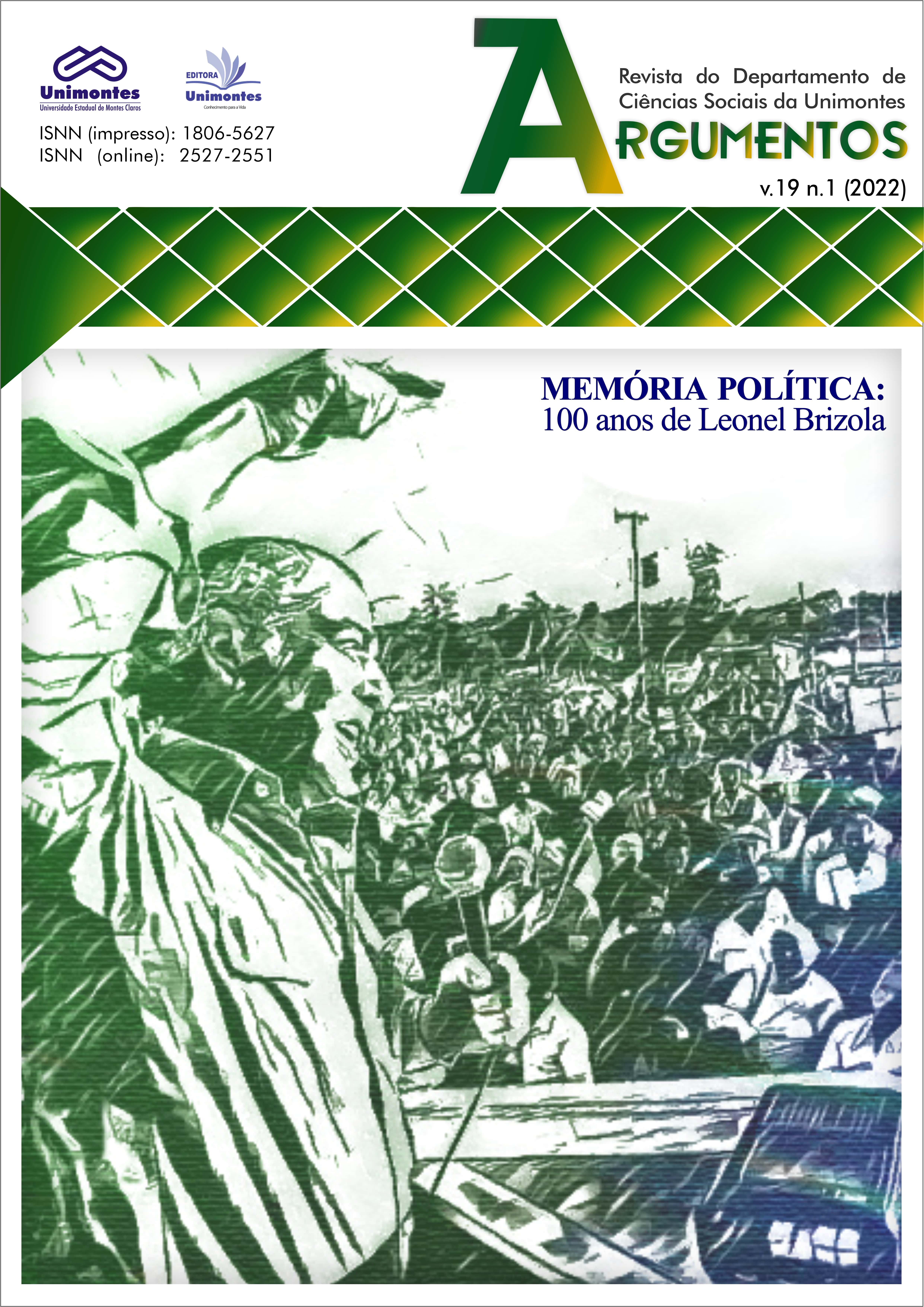The construction of the image in the Brizola's farewell: notes about the funeral's coverage by the press
DOI:
10.46551/issn.2527-2551v19n1p94-117Keywords:
Leonel Brizola, Memória, Imprensa, Democracia, FuneralAbstract
The article intends to analyze how the newspapers built Leonel Brizola's image during his funeral, in June 2004. Although the Democratic Labour Party had faced severe electoral losses in the years before Brizola's death, he remained active in public life. The extensive coverage of his death all over the media from the most diverse ideological perspectives, as well as the popular commotion - combined with the political effort of Brizola's heirs - boosted his image into the spotlight of national politics. The political crisis that led to the congress coup against Dilma Rousseff, in 2016, consolidated the return of Brizola's image through access to a Brizola from a more distant past: his fight for democracy in 1961. Thereby, despite his death, the memory of the politician remains strong. I found the already traditional interpretations of Maurice Halbwachs (1990) to be more appropriate to the theme. In addition, the analysis started from reflections already presented on the relationship between History and the Press, as well as the relationship between the press and politics. The sources consulted for this reflection were the periodicals Zero Hora, Correio do Povo, O Globo and Jornal do Brasil.
Downloads
References
BANDEIRA, Moniz. Brizola e o trabalhismo. Rio de Janeiro: Civilização Brasileira, 1979
COSTA, Izabel Cristina Gomes da. Em busca do paradigma perdido: as esquerdas brasileiras e a crise do socialismo real. Tese (Doutorado). Universidade Federal Fluminense, Niterói, 2009.
ENNE, Ana Lucia S. Memória, identidade e imprensa em uma perspectiva relacional. In: Revista Fronteiras, v. 6, n. 2, 2004.
FERREIRA, Jorge. A estratégia do confronto: a Frente de Mobilização Popular. In: Revista Brasileira de História. São Paulo, v. 24, n° 47, 2004.
FERREIRA, Marieta de Moraes. (Org.). João Goulart: entre a memória e a história. Rio de Janeiro: FGV, 2006.
___________. Do Rio Grande do Sul à Guanabara. In: _______ (Org.). A força do povo: Brizola e o Rio de Janeiro. Rio de Janeiro: Alerj, CPDOC/FGV, 2008.
FIGUEIREDO, Argelina Cheibub. Democracia ou Reformas? Alternativas à crise política: 1961-1964. São Paulo: Paz e Terra, 1993.
GOMES, Angela de Castro. Brizola e o trabalhismo. In: Revista Anos 90, v. 11, n. 19/20. Porto Alegre, 2004.
HALBWACHS, Maurice. A memória coletiva. São Paulo: Vértice, 1990.
JEANNENEY, Jean-Noel. A mídia. In: RÉMOND, René (Org.). Por uma história política. Rio de Janeiro: Editora UFRJ, 1996.
LUCA, Tania Regina. Fontes impressas: História dos, nos e por meio dos periódicos. In: PINSKY, Carla B. (Org.). Fontes Históricas. São Paulo: Contexto, 2005.
MACEDO, Michele Reis de. Recusa do passado, disputa no presente: esquerdas revolucionárias e a reconstrução do trabalhismo no contexto da redemocratização brasileira (décadas de 1970 e 1980). Tese (Doutorado em História) - Universidade Federal Fluminense, Niterói, 2012.
___________. As esquerdas revolucionárias, Leonel Brizola e a refundação do trabalhismo. In: FREIRE, Américo; FERREIRA, Jorge (Orgs.). A razão indignada: Leonel Brizola em dois tempos (1961-1964 e 1979-2004). Rio de Janeiro: Civilização Brasileira, 2016.
MENESES, Sônia. A mídia, a memória e a história: a escrita do novo acontecimento histórico no tempo presente. In: Revista Anos 90, Porto Alegre, v. 19, n. 36, 2012, p. 35-65.
POLLAK, Michael. Memória, esquecimento, silêncio. Estudos Históricos. Rio de Janeiro: CPDOC/FGV, v. 2, n. 3, 1989.
RODRIGUES, Mônica. Imprensa: uma relação de amor e ódio. In: FERREIRA, Marieta de Moraes (Org.). A força do povo: Brizola e o Rio de Janeiro. Rio de Janeiro: Alerj, CPDOC/FGV, 2008.
ROUSSO, Henry. Para una historia de la memoria colectiva: el post-Vichy. In: Aletheia. Buenos Aires, v. 3, n. 5, 2012.
SENTO-SÉ, João Trajano. Brizolismo: estetização da política e carisma. Rio de Janeiro: FGV, 1999.
TRAVERSO, Enzo. O passado modos de usar. Lisboa: Edições Unipop, 2012.







.png)










.png)





